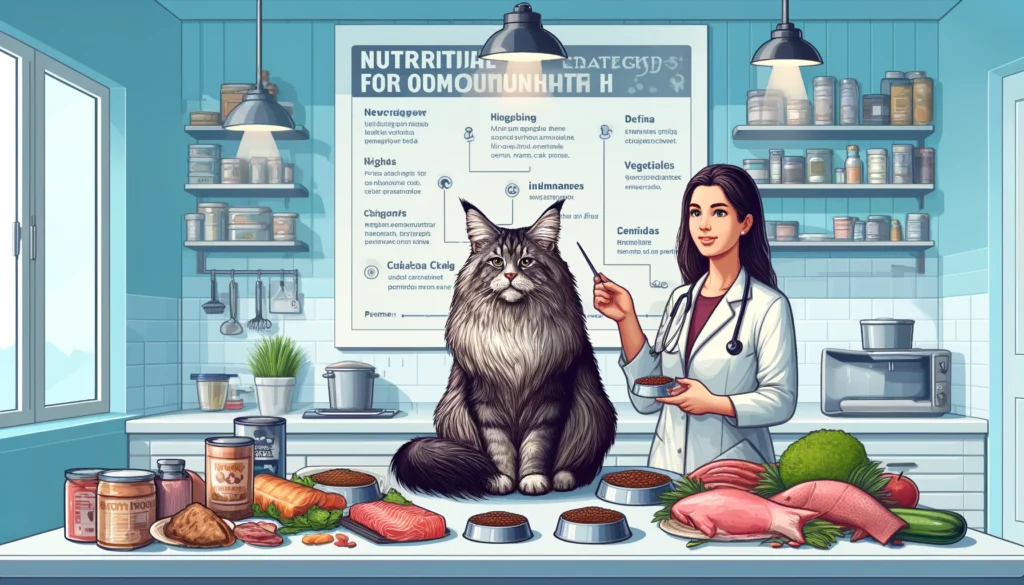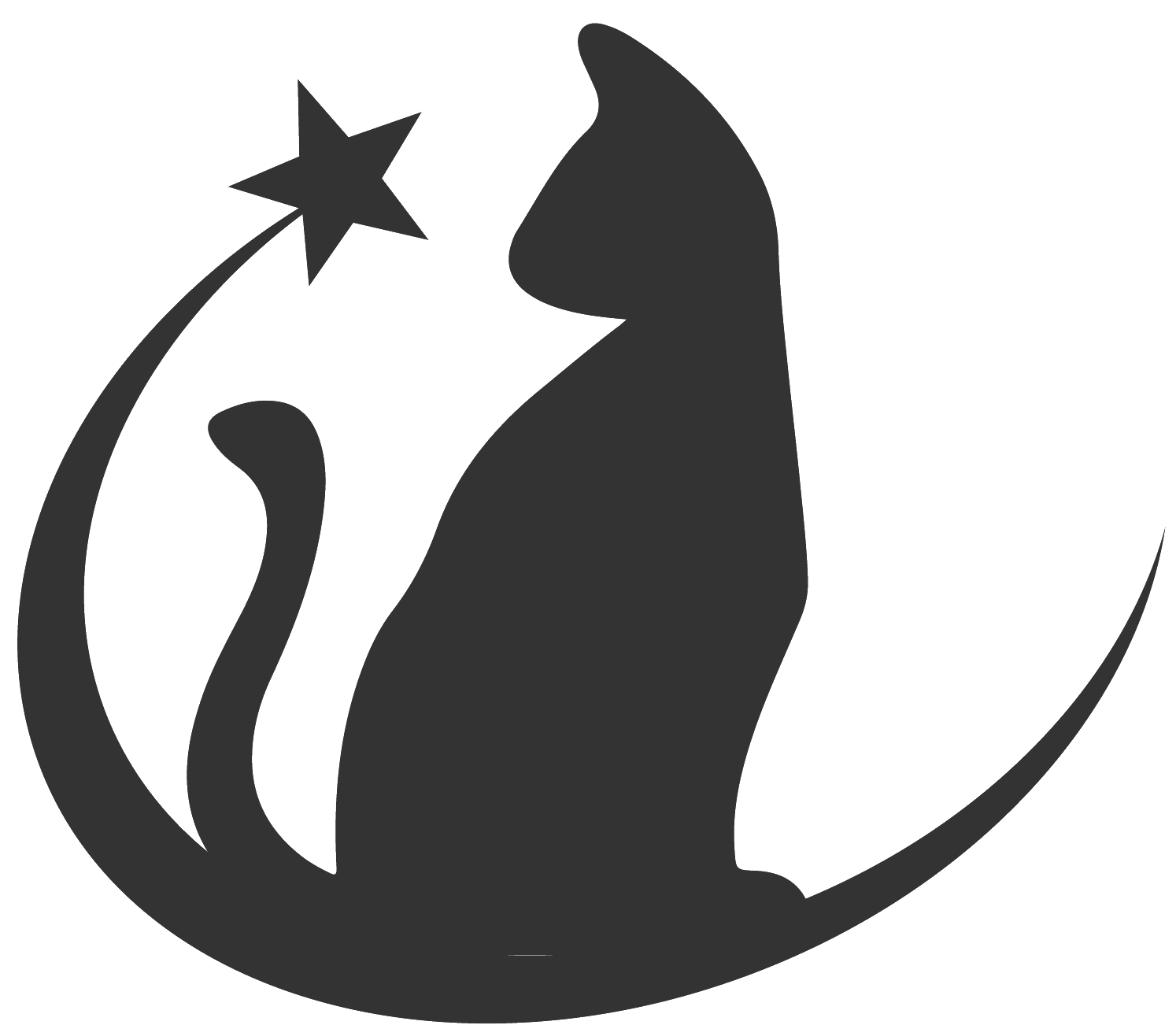
Maine Coon cats, known for their majestic size and friendly disposition, require particular nutritional strategies to maintain optimal health. Understanding their dietary needs is crucial for their well-being and longevity.
Understanding Maine Coon Cats’ Unique Nutritional Needs
Maine Coon cats are one of the largest domestic cat breeds, with a robust physique and thick, luxurious coat. Their unique characteristics demand a diet that caters to their size, energy levels, and potential health issues. Ensuring they receive the right nutrients in the correct proportions is essential for maintaining their health.
Importance of Balanced Diets
A balanced diet is the cornerstone of a healthy life for Maine Coon cats. It ensures they get all the necessary nutrients without any excesses that could lead to health problems. A well-balanced diet supports their immune system, maintains their coat’s condition, and keeps their energy levels stable.
Essential Nutrients for Maine Coon Cats
Protein Requirements
Protein is vital for Maine Coon cats, supporting muscle maintenance and growth, especially given their large size. High-quality animal proteins, such as chicken, turkey, and fish, should form the bulk of their diet. These proteins are rich in essential amino acids that cats cannot synthesize on their own.
Fats and Fatty Acids
Fats are a crucial energy source and help maintain a healthy coat and skin. Essential fatty acids, like Omega-3 and Omega-6, are particularly important. They are found in fish oil and certain plant oils and contribute to reducing inflammation and promoting overall health.
Carbohydrates: Friend or Foe?
While cats are obligate carnivores and don’t require carbohydrates in their diet, moderate amounts can provide energy and fiber. However, excessive carbs can lead to obesity and diabetes, so it’s important to manage their intake carefully.
Vitamins and Minerals
Vitamins and minerals are necessary for various bodily functions, including bone health, vision, and immune system support. Taurine, a vital amino acid found in animal tissues, is particularly important for cats. Deficiencies can lead to severe health issues like heart disease and vision problems.
Hydration: The Vital Element
Water is essential for all living beings, and Maine Coon cats are no exception. Ensuring they are well-hydrated supports kidney function, digestion, and overall health. Wet cat food can help increase their water intake alongside providing fresh water at all times.
Dietary Recommendations for Maine Coon Cats
Commercial Diets: Pros and Cons
Commercial cat foods are convenient and formulated to meet cats’ nutritional needs. However, it’s crucial to choose high-quality brands that use real meat as the primary ingredient and avoid fillers and artificial additives.
Homemade Diets: Benefits and Challenges
Homemade diets can be tailored to meet the specific needs of Maine Coon cats, using fresh ingredients. However, ensuring the diet is nutritionally complete and balanced can be challenging and often requires guidance from a veterinarian.
Raw Food Diets
A raw food diet mimics what cats would eat in the wild and can provide high-quality nutrition. However, it carries risks of bacterial contamination and requires careful preparation to avoid deficiencies and imbalances.
Grain-Free Diets
Grain-free diets can be beneficial for cats with certain allergies or intolerances. However, they are not inherently superior to grain-containing diets and must be evaluated for their overall nutritional quality.
Age-Specific Nutritional Needs
Kittens, adults, and senior Maine Coon cats have different nutritional requirements. Kittens need more protein and calories to support growth, while seniors may need fewer calories and more fiber to maintain a healthy weight.
Managing Weight and Health Issues
Preventing Obesity
Obesity is a common problem in Maine Coon cats due to their large size and love for food. Portion control, regular exercise, and monitoring their weight are essential to prevent obesity and related health issues.
Addressing Common Health Problems
Maine Coon cats are prone to certain health issues like hip dysplasia, heart disease, and dental problems. A diet rich in nutrients that support joint health, heart function, and dental care can help mitigate these risks.
Dental Health and Diet
Dental health is often overlooked but crucial for overall well-being. Feeding dry kibble or providing dental treats can help reduce plaque buildup. Regular dental check-ups are also important.
Food Allergies and Intolerances
Food allergies and intolerances can cause digestive issues and skin problems. Identifying and eliminating the offending ingredients through an elimination diet can help manage these issues effectively.
Feeding Practices for Optimal Health
Meal Timing and Frequency
Establishing regular meal times and feeding frequencies helps maintain a healthy metabolism. Maine Coon cats should be fed two to three times a day, with portions adjusted according to their age, weight, and activity level.
Portion Control
Overfeeding can lead to obesity, while underfeeding can cause malnutrition. Using measuring cups or a kitchen scale to ensure accurate portion sizes is crucial for maintaining a healthy weight.
Transitioning Foods Safely
Switching foods should be done gradually to avoid digestive upsets. Mixing a small amount of the new food with the old one and gradually increasing the new food’s proportion over a week can help make the transition smooth.
Treats and Snacks: Healthy Choices
Treats should not exceed 10% of a cat’s daily caloric intake. Opting for healthy, low-calorie treats like freeze-dried meat or specially formulated cat treats ensures they get the benefits without excess calories.
Supplements and Special Diets
When to Use Supplements
Supplements can be beneficial for addressing specific health needs, such as joint support or skin and coat health. However, they should be used under the guidance of a veterinarian to avoid over-supplementation.
Understanding Prescription Diets
Prescription diets are formulated to address specific health issues like kidney disease, urinary tract problems, or obesity. These diets should only be used under veterinary supervision to ensure they meet the cat’s overall nutritional needs.
Monitoring and Adjusting Diets
Signs of Nutritional Deficiencies
Signs of nutritional deficiencies can include poor coat condition, lethargy, weight loss, and gastrointestinal problems. Regularly monitoring these signs and consulting a veterinarian if they appear is essential.
Regular Health Check-ups and Diet Adjustments
Regular health check-ups help detect any health issues early. Adjusting the diet based on the cat’s current health status, weight, and age ensures they continue to receive optimal nutrition.
FAQs
What is the best diet for Maine Coon cats?
The best diet for Maine Coon cats includes high-quality animal protein, moderate fats, and minimal carbohydrates. It should be balanced with essential vitamins and minerals.
How much should I feed my Maine Coon cat?
The amount to feed depends on the cat’s age, weight, and activity level. Generally, adult Maine Coon cats need about 25-35 calories per pound of body weight daily.
Can Maine Coon cats eat human food?
While some human foods are safe, many can be harmful. It’s best to stick to cat-specific foods to ensure they get the right nutrients and avoid harmful ingredients.
Is a grain-free diet necessary for Maine Coon cats?
Grain-free diets are not necessary unless the cat has specific allergies or intolerances. The overall quality of the diet is more important than whether it contains grains.
What supplements are beneficial for Maine Coon cats?
Supplements like fish oil (for Omega-3 fatty acids), glucosamine (for joint health), and probiotics (for digestive health) can be beneficial but should be used under veterinary guidance.
How can I tell if my Maine Coon cat is overweight?
You can tell if your Maine Coon cat is overweight by checking their ribs and waistline. If you can’t feel their ribs or see a defined waist, they might be overweight. Regular weigh-ins and consulting a vet can help manage their weight.
Ensuring optimal health for Maine Coon cats through proper nutrition involves understanding their unique needs, providing balanced diets, and regular monitoring. By adopting these nutritional strategies, you can support their long-term health and happiness, ensuring they live a fulfilling and active life.
Sources:
